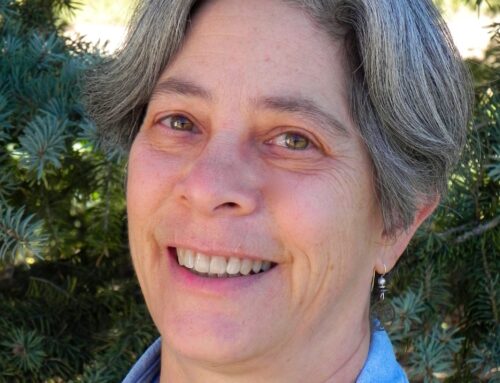ANNOUNCEMENT OF PROFESSIONAL VACANCY
State University of New York
College of Environmental Science and Forestry
1 Forestry Drive, Syracuse, New York 13210-2778
MUSEUM COLLECTIONS MANAGER – VERTEBRATE ANIMALS
Campus Title: Collections Manager, Vertebrate Animals
Unit: Department of Environmental Biology
Professional Rank and Salary Range: SL4, Salary DOQ
https://esf.interviewexchange.
Brief Description of Duties:
The State University of New York College of Environmental Science and Forestry (ESF) in Syracuse, NY invites applications for a calendar year position as an Instructional Support Specialist, serving specifically as the Collections Manager within the Department of Environmental Biology. The successful candidate will be in charge of the physical care, maintenance, accessibility, specimen preparation, and preservation of the College’s vertebrate collections and their associated data, housed within the Roosevelt Wild Life Collections (RWLC). These research and teaching collections are primarily composed of birds and mammals, but also fishes, amphibians, and reptiles. The Collections Manager will promote and support use of collections for educational and research purposes, maintain specimen and loan records, and respond to information and loan requests. The Collections Manager will provide technical assistance for collections-related fund-raising, exhibitions, and other tasks associated with specimens and their data. The Collections Manager will also recruit, train, and supervise diverse student interns, volunteers, and researchers in museum techniques, cooperate with faculty across the College to address their collections-related teaching and research needs, and participate in a professional outreach capacity to promote the use and importance of the RWLC for natural history education.
Primary Responsibilities include but are not limited to:
- Position workload: 40% collections management, 30% records administration, and 30% education and outreach
- Provide knowledge on vertebrate taxonomy, morphology, and natural history as appropriate to the RWLC, for the purposes of collections management, vertebrate preparation, education, and outreach (including handling extension calls)
- Employ best practices in the physical care, maintenance, specimen preparation, preservation, protection, organization, pest management, import/export, acquisition, and strategic growth of vertebrate collections. Some of these duties can include knowledge and proper use of chemicals and their disposal
- Stay current on relevant regulatory laws and compliance procedures related to vertebrate collections, and maintain any permits relevant to the RWLC
- Ensure meticulous record keeping and data accessibility
- Manage multiple projects and their progress in an organized fashion
- Work on extended, iterative tasks (e.g., data entry) with minimal supervision
- Use computer as an important collections tool, including word processing, spreadsheets, data entry, file organization, digitization, imaging, and data archiving
- Use and modify a relational collections database (especially Specify open-source collections database software) to enter, retrieve, and organize specimen data
- Recruit, train, and supervise collections interns, volunteers, researchers, student teaching assistants, faculty, and staff in proper specimen and data handling and related museum techniques
- Seek ongoing collections improvement (e.g., data and specimen accessibility and interpretation, physical infrastructure, workflow)
- Keep collections spaces and equipment clean, tidy, pest-free, and in working order, addressing any issues in a timely manner
- Cultivate specimen acquisition, including specimen exchanges, donations, and field collections or salvage, to address strategic needs, in consultation with Head Curator
- Effectively and professionally communicate with members of the college and the public (both written and oral)
- Foster a positive and cooperative working environment with undergraduate and graduate students, staff, and faculty from diverse backgrounds
- Teach a course in museum techniques, focused on vertebrate animals and specimen preparation
- Work with faculty and students to identify collections-based research projects; Collections Manager may also participate directly in research related to collections
- Keep abreast of current collections trends, issues, and best collections practices, including biodiversity informatics being an active member of the Society for the Preservation of Natural History Collections (SPNHC)
Requirements:
MINIMUM QUALIFICATIONS
- Master’s degree in a natural science or museum collections field, and
- Three years of work experience in the natural sciences or natural science museum collections, or a combination of these
- Computer competency to include word processing, spreadsheet software, and file organization
Physical mobility requirements:
- Able to handle specimens and operate tools or controls, reach up to 96 inches high (via step stool or ladder), climb (stairs, ladders, stepstools) and physically maneuver in area to perform job duties
- Able to lift and/or move up to 25 pounds
PREFERRED QUALIFICATIONS
– Proficiency in vertebrate taxonomy, morphology, and natural history, especially within the northeastern United States, along with a working knowledge of scientific principles and practices
– Working knowledge of the techniques, best practices, professional standards, and regulations for vertebrate specimen collection and preparation
– Working knowledge of relevant regulatory laws and compliance procedures related to collections, particularly vertebrate collections
– Previous work experience involving day-to-day management of collections
– Demonstrated proficiency with standard natural history database systems, (e.g. Specify, Axiell EMu, Symbiota, Arctos), and/or computer programming experience highly desired
– Working knowledge of external data repositories such as Global Biodiversity Information Facility (GBIF), iDigBio, and MorphoSource
– Demonstrated organizational and project management ability
– Experience writing effective reports, grants, professional correspondence and/or procedure manuals
– Demonstrated proficiency in presenting information to and responding to questions from individuals or groups of managers, scientists, and the general public
– Demonstrated interest in collections improvement (including but not limited to data and specimen accessibility and interpretation, physical infrastructure, and workflow)
– Demonstrated potential for engaging diverse students in the classroom or as a research or museum techniques mentor
– Demonstrated commitment to diversity, access, and in fostering an inclusive environment
– Demonstrated potential for identifying and developing collections-based research projects at the high school, college, and/or graduate level
– Membership in SPNHC, and relevant vertebrate-based society memberships
Application Instructions:
Internal Procedure: UUP-represented employees of SUNY-ESF desiring consideration under the Advanced Internal Application Procedures should submit application materials by August 4, 2021 and contact Amy McLaughlin, Associate Director of Human Resources to request early consideration.
Application Deadline: Although applications will be accepted until the position is filled, candidates should submit their application by August 30, 2021, to ensure optimal consideration.
Application Procedure: Application materials are required to be submitted on-line at http://www.esf.edu/hr/. Please provide the following in a single PDF file in this order: 1) a Cover Letter explaining interest and summarizing qualifications (three pages maximum), 2) Curriculum Vitae, 3) a two-page Collections Statement, and 4) at least three employment references (we will not contact references without prior permission). In your Collections Statement, please address BOTH of the following: 1) why natural history collections are important, and 2) a recent advance or issue in the collections field and how it applies to and is important for the RWLC. Questions about the application process and document submission should be directed to the Human Resources office.
Additional Information:
About the College of Environmental Science and Forestry: Founded in 1911, the State University of New York College of Environmental Science and Forestry (ESF) is the nation’s oldest and most respected school dedicated to the study of the environment, developing renewable technologies, and building a sustainable future. The ESF main campus is in Syracuse, NY and has regional campuses throughout Central New York and the Adirondack Park. The Department of Environmental Biology (https://www.esf.edu/efb/
Pursuant to Executive Order 161, no State entity, as defined by the Executive Order, is permitted to ask, or mandate, in any form, that an applicant for employment provide his or her current compensation, or any prior compensation history, until such time as the applicant is extended a conditional offer of employment with compensation. If such information has been requested from you before such time, please contact the Governor’s Office of Employee Relations at (518) 474-6988 or via email at info@nullgoer.ny.gov
In accordance with the Jeanne Clery Disclosure of Campus Security Policy and Campus Crime Statistics Act” institutions of higher education are required to prepare an annual report containing information on campus security policies and campus statistics. This report includes statistics for the previous three years concerning reported crimes that occurred on-campus; in certain off-campus buildings or property owned or controlled by SUNY-ESF; and on property within, or immediately adjacent to and accessible from the campus. The report also includes institutional policies concerning campus security, such as policies concerning sexual assault, and other matters. You can obtain a printed copy of this report by contacting SUNY-ESF University Police at 315-470-6667 or by accessing the following web site: http://www.esf.edu/univpolice/
SUNY ESF is a Smoke and Tobacco Free campus and is dedicated to providing a healthy and safe environment for the entire campus. For more information you can visit our Tobacco and Smoke Free Policy at https://www.esf.edu/au/
SUNY-ESF is an equal opportunity/affirmative action employer. All qualified applicants will receive consideration for employment without regard to sex, gender identity, sexual orientation, race, color, religion, national origin, disability, protected veteran status, age, or any other characteristic protected by law.




